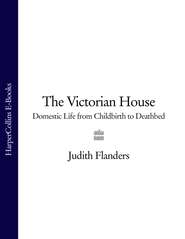По всем вопросам обращайтесь на: info@litportal.ru
(©) 2003-2025.
✖
Consuming Passions: Leisure and Pleasure in Victorian Britain
Настройки чтения
Размер шрифта
Высота строк
Поля
The notices in to-day’s paper run:…
1 Plays produced at the Haymarket theatre; names of actors and actresses…followed by the prices of the seats…
2 Plays at the small Sadler’s Wells theatre, where to-day’s programme offers a satire on magnetism and somnambulism in particular, and where tumblers and tight-rope walkers may be seen…
3 At the Royal Bush, Mr Astley’s amphitheatre;* (#litres_trial_promo) men, boys and girls in trick-riding; fireworks; short comedies and ballets…
4 Bermondsey Spa, a place where firework displays are held, announces that the scaffolding has been well and strongly made.
5 The royal Circus; adults and children in trick-riding, children in comedy and pantomime; Italians in dancing and buffoonery.
6 Two fine large green tortoises for sale.
7 A notice against some piratical printer.
8 Discovery of new pills.
9 Notice of maritime matters…
10 On the docks at Woolwich all kinds of old ships’ timber and nautical instruments to be sold.
11 Notice that…the South Sea Voyagers’ company will meet.
12 Fifty guineas reward for information concerning attack of a customs officer by one or more of the shipping hands…
13 A pleasant villa in Fulham to be sold; with orchards and fish-pond.
14 Bitter stomach pills…
15 Notice that the king and queen returned here yesterday from Windsor…and all the names of the gentlemen presented: further, that the list of criminals committed to die was placed before the king; that yesterday evening in the queen’s palace a concert was given for the Archduke and duchess of Milan.
16 That the East India Company offers several million pounds of tea for sale, terms of disposal consequently much lower.
17 That on the continent there is a rising against papal power…
18 More congratulations to the king from various cities for having escaped the mad Nicholson woman’s attack…
19 Discovery that the bottom of a fishing-smack was exclusively laden with French brandy…
20 That the commercial pact with France would mean permanent peace.
21 That all those gentlemen opposed to the minister Pitt are gone to the country to increase the number of their supporters…
22 A match [i.e. prize-fight] between a Jew and a harness-maker in the Epping Forest…
23 Miss Farren reprimanded for having been ashamed to repeat an epilogue for the fourth time…
24 A reminder to change the post-time…
25 News from Paris.
26 From Plymouth.
27 Horse-racing, breed and virtues of horses.
28 Short verses.
29 Shipping news - who, where and whither.
30 Bills of exchange, per cents, and bank news…
31 A desirable residence, eighty-four years’ lease. In all these cases a separate breakfast-room is mentioned…
32 Several estates, all laying particular stress on the fact that fruit-trees are planted there, and are watered by a canal…
33 In addition several more houses, mills and farms. With the houses there is always a note to the effect that they do or do not contain many mahogany pieces…
34 Sixty kinds of coaches for sale.
35 Horses of all descriptions.
36 All kinds of wines, 110 bottles.
37 Inquiry about two missing men…
(#litres_trial_promo)
Provincial papers did not have this quantity of notices and advertisements, but in their own markets they satisfied their customer base. Circulations remained small - in 1795 the daily circulation of the Morning Post was 350;
(#litres_trial_promo) even multiplied by 30 readers per copy, that was a tiny number. But, properly focused, it was enough. Chester had a population of 10,000 in 1700, and that sustained two newspapers, the Courant and the Chronicle, which covered, according to their advertisements, the areas across Chester, north Shropshire, north-east Wales, south Lancashire (including Liverpool, Wigan and Manchester) and north Staffordshire. Itinerant sellers found it worth their while to advertise that they would be ‘at the Wolf’s Head, Watergate Street’, to sell ‘foreign china’, or ‘at Mr Maddox’s Cork Cutters Shop…with great choice of China Ware’. Other retailers advertised their shops selling seeds, bankrupt stock, thread, drapery and alcohol. Many stressed their London connections: those selling fashion items like shoes, fabric, upholstery and furniture all had advertisements suggesting their stock had just been purchased in London, or was ‘in the present fashion’.
(#litres_trial_promo)
The advertisements for patent medicine were the mainstay of many newspapers. The New Bath Guide, a satire, mocked the fashionable doctor and herbalist John Hill and those who were dosed by him:* (#litres_trial_promo)
He gives little Tabby a great many Doses
For he says the poor creature has got the chlorosis,
Or a ravenous pica, so brought on the vapours
By swallowing Stuff she has read in the papers.
(#litres_trial_promo)
Many newspaper owners, or their agents, were heavily involved in the patent-medicine business. By 1730 William Dicey and Robert Raikes were in partnership with Thomas Cobb and Benjamin Okell to sell Dr Bateman’s Pectoral Drops. John Newberry, the publisher of the first children’s magazine,† (#litres_trial_promo) had a quarter-share in Dr Hooper’s Female Pills, and from 1746 he owned the rights to Dr James’s Fever Powders, which he advertised through the newspapers and also in the books he published: Goody-Two Shoes - which may very well have been written by Oliver Goldsmith - began, ‘CARE and Discontent shortened the Days of Little Margery’s Father. - He was forced from his Family, and seized with a violent Fever in a Place where Dr James’s Powder was not to be had, and where he died miserably.’
(#litres_trial_promo) At the end of the volume, the child-reader was reminded that the following could be purchased:








